How to Write a Critical Essay - Ninja Tips

Image Source: Flickr via Harry MacKenzie
When a professor assigns a critical essay to their students, it means that they will need to interpret and analyze a given text by providing strong arguments associated with a relevant academic purpose. Students usually confuse critical essays with basic reviews, but there is one important difference: critical essays are more formal in structure and style. This assignment needs to integrate scholarly observations, which makes it significantly more difficult to complete.

Writing a critical essay: The steps of the process
-
Before you can start writing a critical essay, you need a text, play, piece of music, book, movie, or another type of content that you will analyze. This part of the assignment is usually selected by your professor. Make sure you read the text, watch the movie, or listen to the music few times in order to get ideas on what to write about.
-
Now you need to look for relevant material that you will base your discussion upon. You can find sources in online publications, journals, articles, books, and other materials. Your professor won't be happy if you base your critical essay upon popular references, so make sure to find scholarly materials to reference.
-
Write many notes as you go through the referencing materials. This is the stage when you will get basic ideas about your main argument, so make sure to write them down and then choose a strong stand that will represent your understandings.
-
It is recommended to start with the body of the essay first. Make sure to support the argument with several points separated in paragraphs.
-
In the concluding paragraph, you should sum up the points and provide a closing argument within one sentence.
-
Now is the right time to write the introduction. Make sure it represents your argument clearly and close the paragraph with a strong thesis statement that conveys the point of your paper.
-
Read and re-read the critical essay few times in order to catch all mistakes and correct them properly. Fill in the information gaps and remove all unnecessary words, phrases, and sentences.
Useful tips for writing a critical essay
-
Writing a critical essay means that you are supposed to examine, question, and evaluate the given text. You should understand what the author aims to achieve and write an admissible critique.
-
Support your main point with secondary arguments that will make it stronger and more believable.
-
Don't use rhetorical questions in this type of academic content because they will weaken your argument and make the discussion predictable.
-
Work on your persuasive expression skills. You have to convince the reader of the validity of your argument. You can use facts supported by citations in order to achieve that effect, but you can also base the discussion on evidence or appeal to emotion.
What writing style to use in critical essays
The most commonly used critical writing style is "claim and evidence". This means that the writer needs to make several claims about the text in question and then provide their arguments while supporting the discussion with evidence found in academic sources.
The "new information" method is a critical writing style where the writer uses fresh research that no other writer has used for the purpose of analyzing and discussing the same text.
Another effective style is "examination and exploration". This means that you will be looking into the smallest details of the text in order to explore the reasons, motives, and inspiration the writer had in order to write that content.
Things to do when writing a critical essay
-
Provide more facts to support your arguments and use quotes when you're presenting another author's words.
-
Demonstrate that you have read and understood the text in question.
-
Base the discussion on philosophical notions such as deduction, logic, and inference.
-
When you're paraphrasing other authors, make sure to do it effectively and accurately. Always support these parts of the content with proper references.
-
Use opposing arguments.
What not to do when writing a critical essay
-
Don't introduce new points and materials in the conclusion.
-
Don't lose the connection between the paragraphs.
-
Don't base your discussion on negative sentences.
-
Don't provide a negative critique based on subjective understandings.
-
Don't use unscholarly style based on commonplace examples, magazine-style expression, or popular rhetoric.
Common mistakes to avoid when writing a critical essay
-
Your mere opinions are not actual points. Make sure to support them with scholarly facts.
-
Try to appeal to the sentiments of the reader, but don't do that in an overstated manner.
-
Make sure to examine you references and use them only if they are up-to-date and relevant to the issue you're elaborating.
-
The content should not be a simple presentation of the information and facts you found during the research phase. Your thesis argument has to be clear and based on your personal understanding of the matter.
The critical essay you submit needs to be written in flawless style supported by investigative criticism, sound reasoning, and an attitude of logical examination of the facts.




